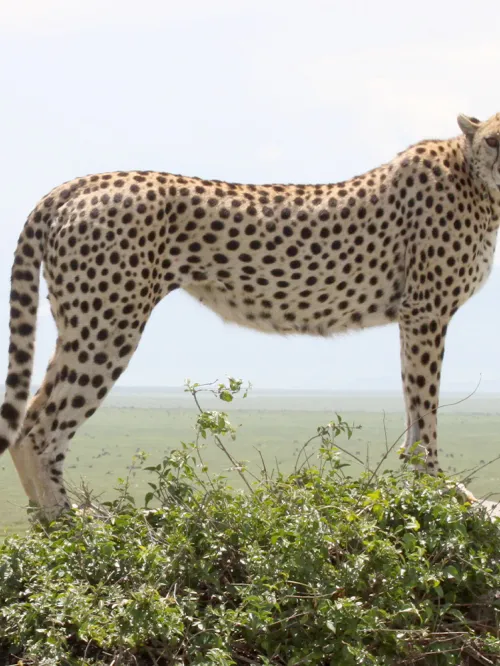Our work in Africa
Humane World for Animals tackles the root causes of animal cruelty and suffering to create permanent change. We make change at scale, advocating for policy change at all levels of government and working with companies so that they can be kinder to animals their businesses impact. We work in partnership with communities, bringing diverse expertise to the most complex issues, and doing it all with a compassionate and welcoming approach.
Our impact
We envision a world without animal cruelty, where humans and animals coexist peacefully. In Africa, we work to promote non-lethal solutions to human-wildlife conflicts, improve the lives of animals raised for food, end the illegal wildlife and captive big cat trade, advocate for a more plant-forward food system, increase access to spay/neuter services and primary veterinary care for companion animals, ending cosmetics animal testing and helping animals in disaster situations.
outside Kruger National Park have received an immunocontraceptive vaccine
have a permanent home at our sanctuary in Liberia
in South Africa have been sterilized through our Healthy Pets, Healthier Communities initiative
Latest News
Join Us on a Humane Travels Tour
At this time, we are no longer offering trips to SanWild Wildlife Sanctuary in South Africa. Please still consider donating to help the animals at SanWild. If you are interested in Humane Travels with HSI, please email us at humanetravels@humaneworld.org. Read about
Don't Buy Wild
Illegal wildlife trade generates more than USD $10 billion annually, third behind only the illegal drug and arms trades. While many people knowingly contribute to such trade, unsuspecting customers can easily buy items like ivory trinkets and turtle shell products in stores
Don't Buy Wild Guide
The global trade in wildlife parts and products is hugely detrimental and many travelers unknowingly participate in this trade. Wildlife and wildlife products may be legal to sell in certain countries, but bringing these items home with you may be illegal or
Top Five Reasons to Use a Community Ecotourism Operator
In HSI’s Wildlife Ecotourism section, we work with local NGOs in developing countries to help communities create ecotourism products that are unique, exciting, and beneficial for people, animals, and the environment. To find out the five most compelling reasons to try this
Stronger Legal Protections for Animals in Labs
In September 2010, the European Union voted to adopt a new law for the protection of animals used for scientific purposes, which replaces its nearly 25-year-old predecessor. Humane Society International has been at the forefront of the animal welfare lobbying effort throughout
Street Dogs in Mexico
Of all the Spanish-speaking countries in the Americas, Mexico has by far the greatest number of animal welfare organizations actively seeking the support of the government and the community to pass stricter laws against animal cruelty. The current state of affairs in
Intensive Confinement of Farm Animals in Brazil
Do you know where the eggs that you consume come from? Although we tend to believe that animals raised for food roam freely on pastures or on small outdoor farms, this is far from reality for most farm animals. The majority of
South Africa's Dark Side
by Marcie Berry Update: In November 2010, a Supreme Court of Appeals ruled in favor of the South Africa Predator Breeders’ Association regarding the hunting of captive-bred lions. This is sad news for lions in South Africa and it is unfortunate that
Sara Shields, Ph.D.
Sara Shields earned her B.S. in Zoology from Colorado State University and her Ph.D. from The University of California, Davis in Animal Behavior in 2004. She worked in a postdoctoral capacity at the University of Nebraska, in the Animal Science department, as
Help us end animal cruelty
Start saving lives today by making a one-time gift—or protect animals worldwide all year long with a monthly contribution.
